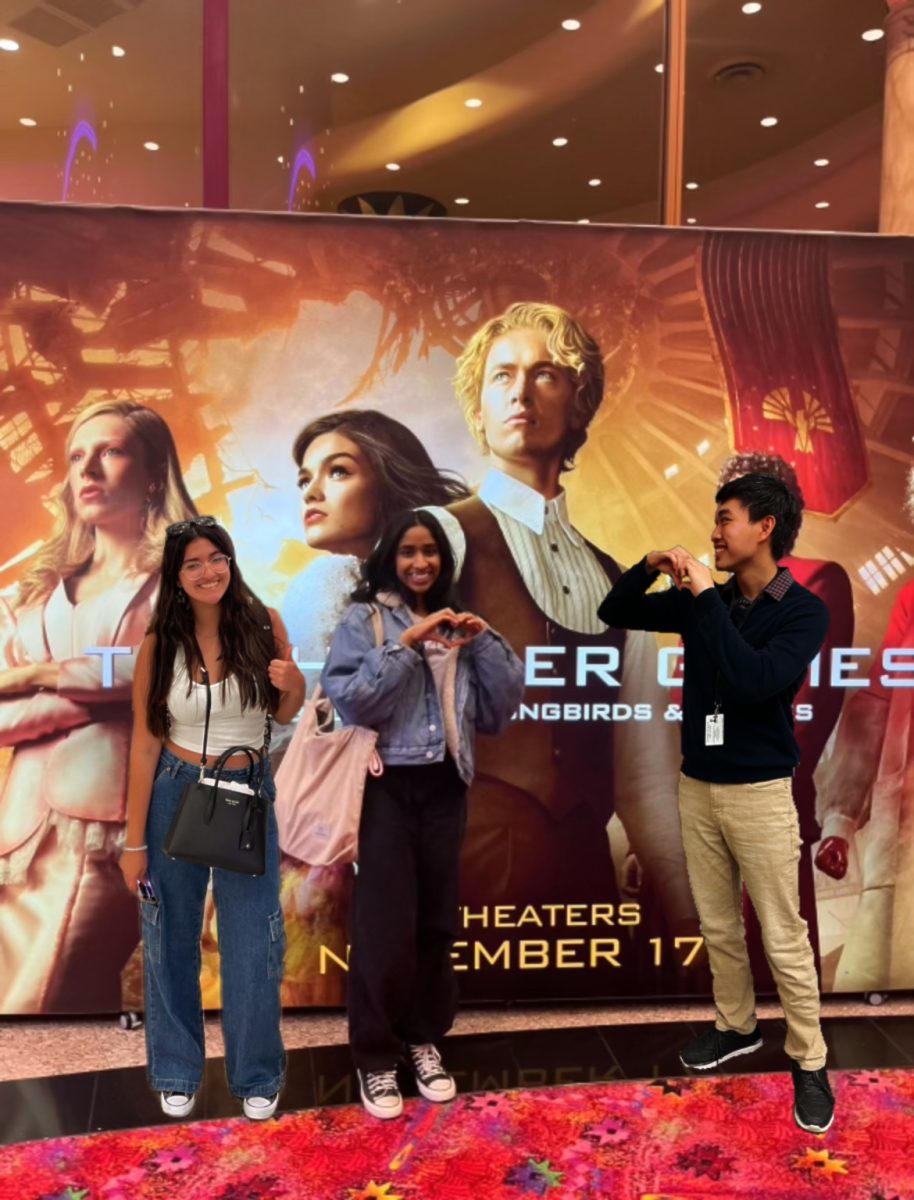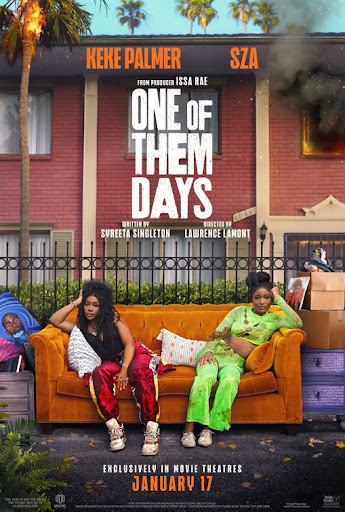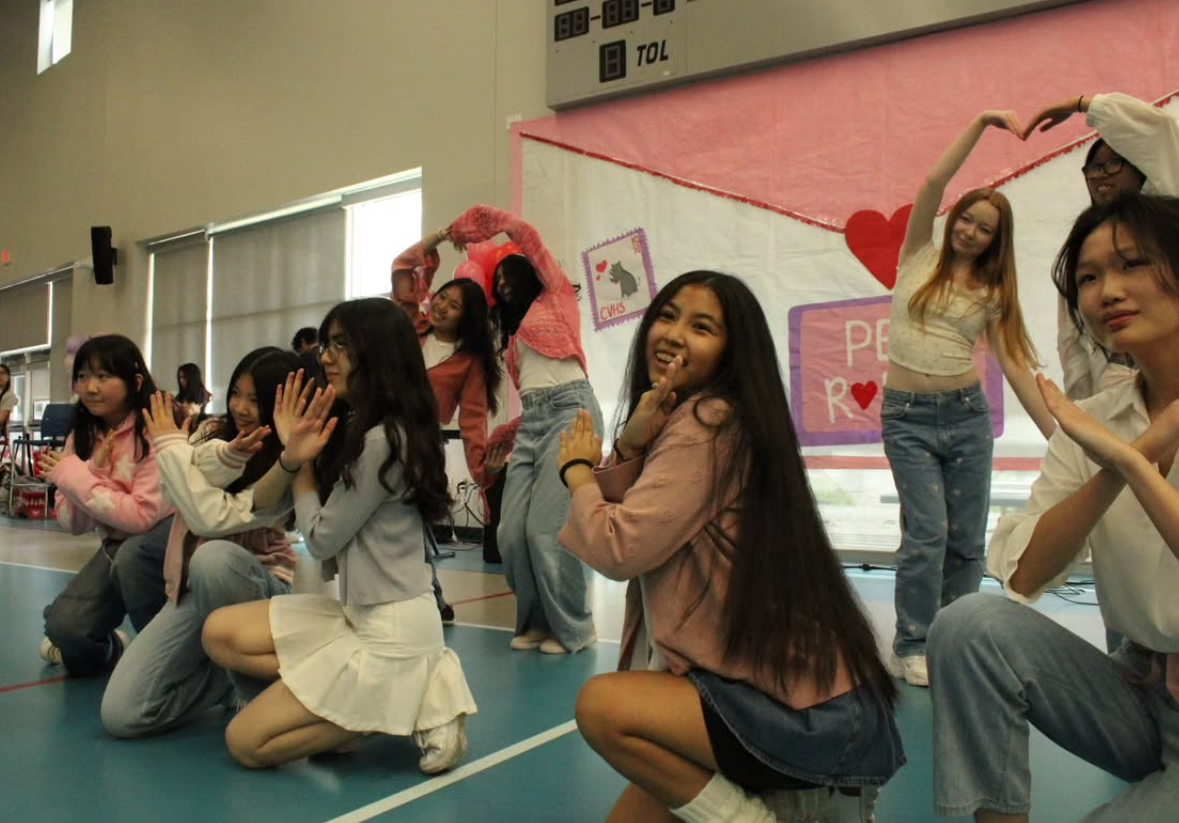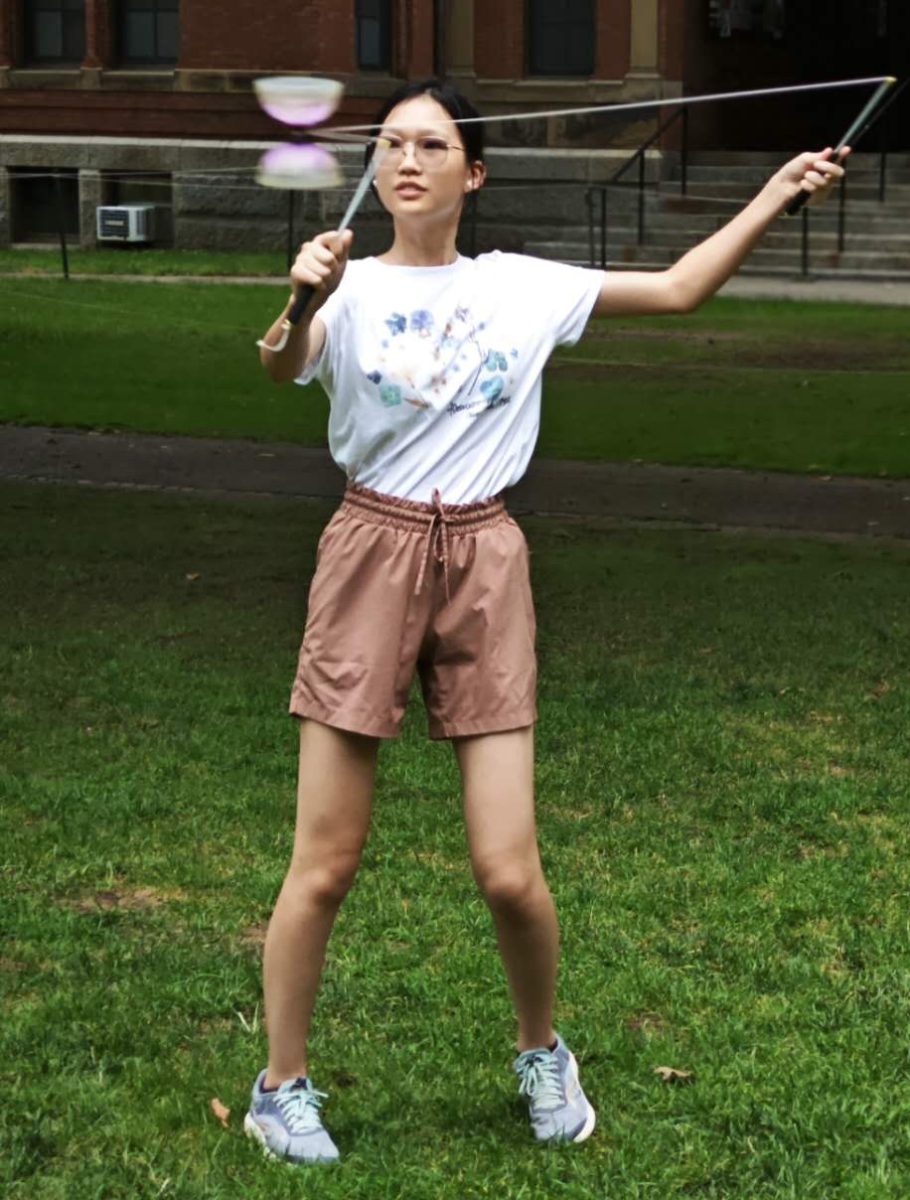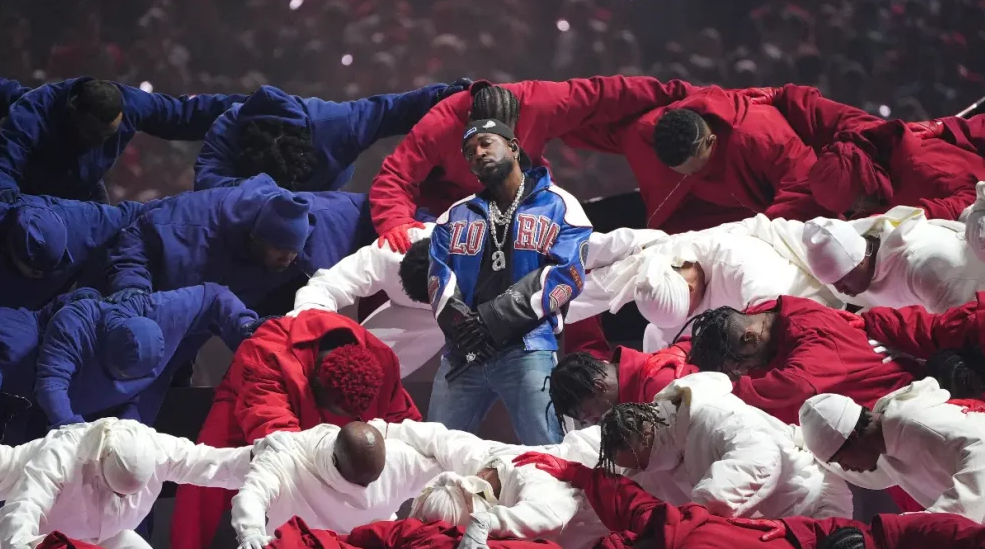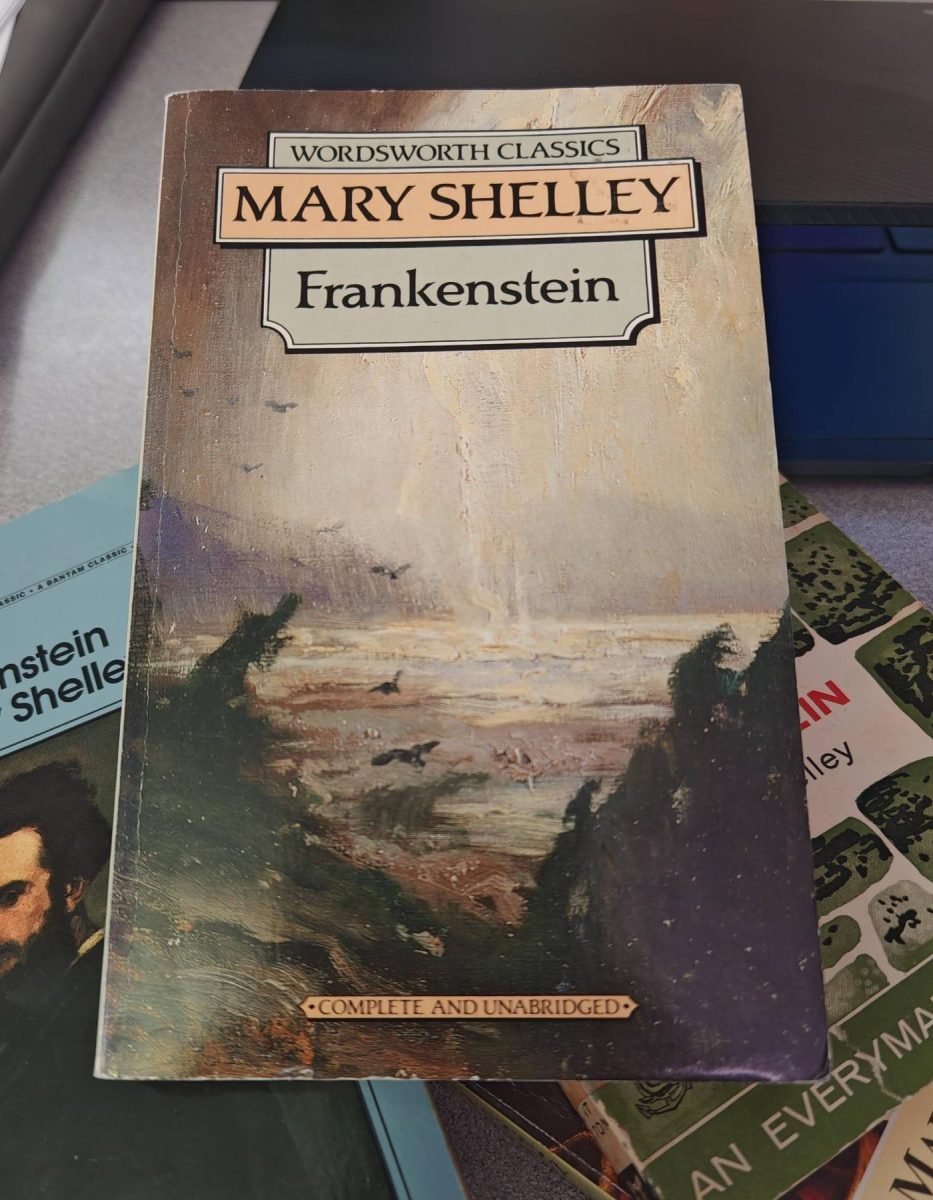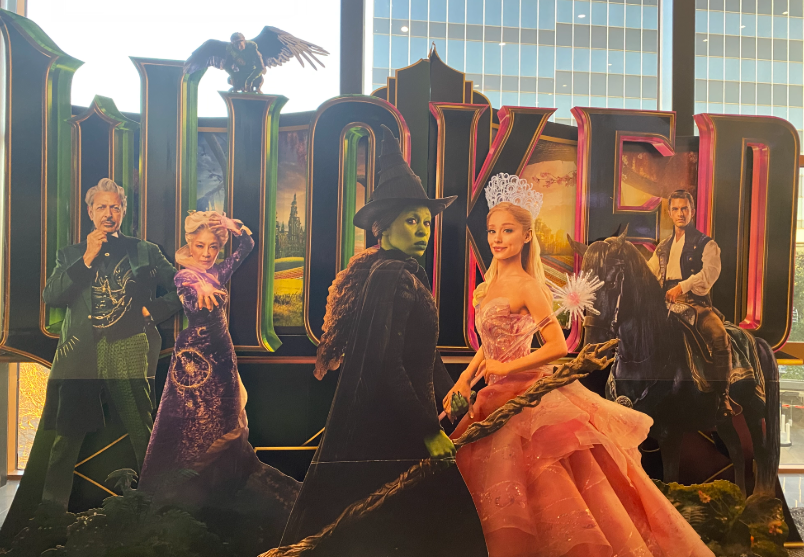DISCLAIMER: This review will contain major spoilers about The Hunger Games: The Ballad of Songbirds and Snakes.
A tall, chiseled man with blonde curls captured the audience of the movie theater on opening night, his regal looks and endless charm emanating from his tailor-made suit and tesserae cuff links. To say that we were all collectively in love with this man was an understatement.
Yet, an annoying little voice in our ears snapped us out of our snowy reverie. We were swooning over a character who was responsible for the deaths of hundreds and the mastermind of the sadistic creation known as the Hunger Games, Coriolanus Snow.
But he’s a can of worms we’ll open up later. DISCLAIMER: He was really [redacted] hot.
The Hunger Games, created by Suzanne Collins, is a dystopian trilogy set in Panem, a society governed by the Capitol, a city that exploits its wealth from 12 Districts. Annually, the Capitol selects one boy and one girl between the ages of 12 and 18 from each district to fight to the death as a form of entertainment. The original series followed Katniss Everdeen, a brave heroine who sought to defy the injustices of Panem. However, the newly released prequel to the Hunger Games, The Ballad of Songbirds and Snakes explores the complex story behind Coriolanus Snow, the villain and leader of Panem. Eighteen-year-old Coriolanus Snow’s ascent to glory relies on the success of his tribute in the 10th annual Hunger Games. The formerly wealthy Snow family now looks to Coriolanus to surpass his contemporaries to restore power to their family.
He is tasked with mentoring the female tribute, Lucy Gray Baird, from District 12, the lowest-ranked district. As empathy grows for Lucy Gray outside the arena, Coriolanus grapples with a pivotal decision: follow the law or compromise his morals to stake everything for his victory. (Spoiler: He does the latter of the two.)
We entered the movie theater as staunch haters of Snow, ready to root for the “morally good” character of the story, Lucy Gray, who is played by Rachel Zegler. But surprisingly, we were immediately wonderstruck when we first laid our eyes on him. Where was his infuriating inner monologue? Where were his obnoxious demands for princess treatment? Was this even the same guy that we utterly despised while reading the book?
People who didn’t read the books don’t know that the charismatic blondie on the screen was a total facade. Every dazzling smile, every seemingly passing remark, and every good deed was custom-tailored to win someone’s favor and never went without an ulterior motive. He acknowledged that humans were selfish and everyone had something they wanted. But more so, he acknowledged that he was the most selfish of them all and he wanted everything, all the control, and that he would go to any lengths, including stepping over morally gray lines, to get it.
While reading the book, this was all very… obvious to us and was revealed entirely by Snow’s inner monologue throughout the book. Collins wrote an incredibly complex villain, one of the best we’d ever seen, but what was lacking in the book was the thrill of discovering that for ourselves.
In the movies, we clearly see his desire to win the Plinth Prize, but his motives seem rather tame. Volunteering to write a paper for some extra brownie points? He’s just an upstanding lad trying to get a scholarship! As seniors, this sounds pretty normal to us. In fact, without hearing his machiavellian inner thoughts, he was actually quite endearing.
Snow’s dashing looks probably also played a role in convincing Lucy Gray to fall for him, but more than that, Lucy Gray naturally thinks that Snow is a good guy because he is the only person from the Capitol who treats her like a human being.
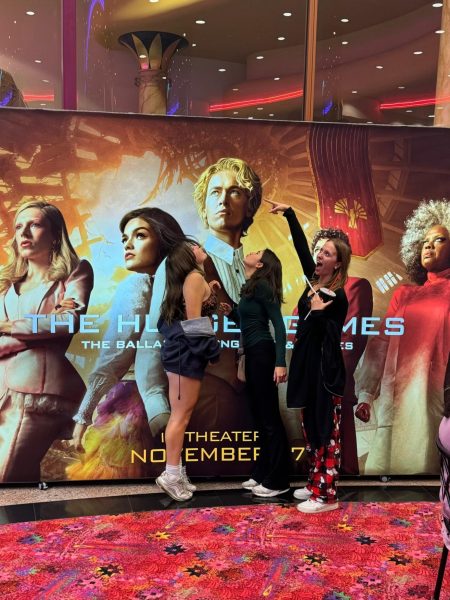
In the movie, it’s easier to believe in their love story. Snow and Lucy Gray saved each other’s lives and stared into each other’s eyes too many times to count, and we found ourselves believing that they actually loved each other. This makes it more fun because, as viewers, we are constantly doubting his intentions, since they’re not being revealed upfront.
One example of the incongruity between his actual and perceived intentions is when he brings a starving Lucy Gray food while she is being held captive for public viewing at the Capitol Zoo (yes, a zoo). In the movie, Snow brings her a sandwich from his lunch, even though he didn’t have enough food at home, and they enjoy an intimate dinner with each other through the cage’s bars, a tender scene that had us kicking our legs and giggling—what a gentleman! Yet, in the book, Sejanus Plinth (Snow’s only friend) is the one who brings a sandwich and tells Snow to give one to Lucy Gray. Even then, he is hesitant to eat with Lucy Gray because he believes that she is beneath him, but decides to do so because “the zoo [is] his show, and he and Lucy Gray [are] the stars,” showing that once again, this was an act of self-preservation, not romance. But while watching the movie, we turned a blind eye towards the despicable man we knew he was.
Similarly, we shamelessly rooted for Coriojanus (the name of the Coriolanus x Sejanus friendship), despite our knowledge of his distaste and resentment for Sejanus in the books, hoping that Snow had formed at least one genuine connection during his time in the Capitol. Throughout the movie, Snow is constantly getting Sejanus out of dangerous situations. From pulling him out of the arena filled with blood-thirsty tributes after Sejanus martyrs himself in protest of the Hunger Games, to their poignant moment of brotherhood as they share thye punishment of becoming peacekeepers in District 12. Even after we saw that Snow had secretly recorded Sejanus confessing to flee north with the rebels, we clung on to the slight moment of hesitation that Snow had before sending the jabberjay to the Capitol.
Ultimately, the book stands more as a curiosity, a detached philosophical exploration that enhances the depth of the initial three books but isn’t imperative for readers. Most book-to-movie adaptations are phenomenal because of their ability to bring life to the stories on a page through well-casted and accurately portrayed characters or jaw-dropping special effects. But with the Ballad of Songbirds and Snakes, not only did we witness the magic of seeing this story on the big screen, but there was such a thrill in growing attached to Snow, despite us knowing very well how he inevitably becomes the dictator of Panem. It rendered the movie an exhilarating experience for everyone, regardless of whether you read the books or not.
We held out hope for Snow until the very end, but as the screen faded to black, we felt every hair in our body rise as we heard Donald Sutherland’s rendition of Coriolanus Snow’s chilling voice whisper “It’s the things we love most that destroy us.”

